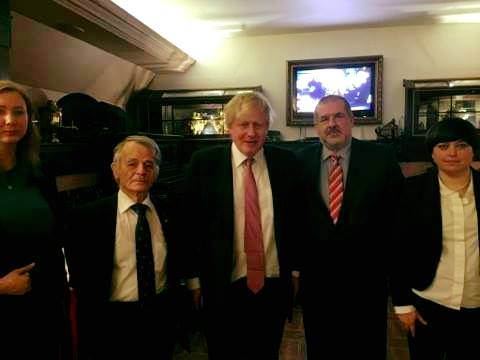On his first visit to Ukraine on 1 March, the British Foreign Secretary Boris Johnson had a meeting with members of the Mejlis of the Crimean Tatar People, illegally banned in Russia, and representatives of non-governmental organizations dealing with Crimea’s de-occupation, in particular the Ukrainian Center for Independent Political Research (UCIPR). They discussed human rights violations in Crimea, and violations of the rights of Crimeans by Russian occupation authorities.
In a speech during the meeting, Yulia Tyshchenko, UCIPR Head of the Democratic Processes Support Program, stressed: “Today’s Crimea is characterized by violations of human rights, manifestations of discrimination of the Crimean Tatar people, and the ban on the Mejlis. These are terrible results of the illegal annexation of the Ukrainian peninsula by Russia. It is important to convey the message about the need to support the Mejlis because the policy of the occupying power is focused on the persecution of undesirable representatives of indigenous Crimean Tatar people: they are jailed on trumped-up charges of ‘extremism’ or ‘squeezed’ out of Crimea through repression. It is also important to support civil society in fighting the annexation.”

According to UCIPR experts, there is a need to enhance sanctions against Russia and control of their enforcement. Britain could play an important role in this process, especially given the fact that it will soon take over the UN Security Council presidency from Ukraine, and that it has announced the restoration of Ukraine’s territorial integrity as one of its foreign policy priorities. Also, there is a need to link the anti-Russian sanctions to human rights violations in Crimea.
It should be reminded that during the visit to Kyiv, Boris Johnson said that his country ‘will never recognize the annexation of Crimea’ and urge European countries to ‘increase pressure on Russia in connection with the annexation of Crimea and its actions in the Donbas’.
